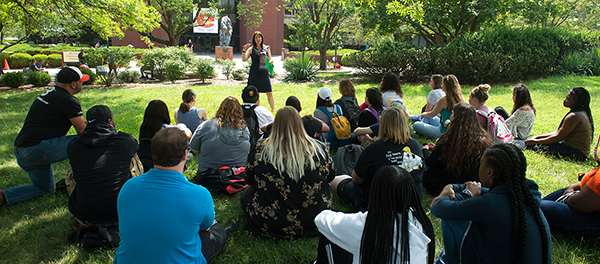|
|
|
The Sociology Program invites you to see....
|
|
|
|
Invitation to Contemplate, Reflect and Muse
|
 |
|
How often do you carve out time during the week to sit and contemplate, reflect or muse? When you have a spare moment, do you fill that space by looking at an electronic device, or do you allow yourself to feel the space?
If you’re like most people, you’re uncomfortable when your time is not filled completely. In fact, one experiment showed that most men (67 percent) and some women (25 percent) would rather be electrically shocked than sit alone in a room without anything to do.
As a species, humans have always worked hard to survive. However, the compulsion to constantly produce (and multitask, no less) didn't emerge until industrialization, when capitalism became the main economic production system.
The irony is that industrialization gave us the ability to work less. Suddenly, machines could produce clothes, food and items we needed at a fraction of the time previously spent.
Yet, rather than use the extra time to do less, we created norms/values of busyness. Now we have luxury homes that require constant maintenance–carpets that need vacuuming, clothes that need washing, and garages that need organizing. We’ve taught our children to crave constant productivity, too, by pushing them into schools with earlier start times and extra-curricular activities that take up their evenings. (Incidentally, much of these extra-curriculars lead to more social inequality.) Finally, within the last decade, we have “smart” phones. Smart phones mean that now, even when we do have a moment, we can (and often do) spend it absorbed in our apps.
Our obsession with productivity has led to a disdain for the dictum attributed to Socrates, “the unexamined life is not worth living.” Rather, many of us consider the “examined” life to be self-absorbed navel-gazing.
Contemplation may not be “productive” in the way we have come to define the term–something that generates material outcomes. Yet, research shows that contemplation helps us feel connected to ourselves, to others and to the natural world. Contemplation enhances our physical health and our well-being. In this newsletter, I’m inviting you to contemplate your busyness and whether that helps you create a peaceful, meaningful life. The readings at the end of the newsletter are a jumpstart to the invitation. Enjoy!
Linda Markowitz, PhD
Chair and Professor, Sociology
|
|
|
|
Connect with Us |
|
| |
Alumni, what are you doing now? What is happening in your lives? We would love to hear from you and possibly feature you in future newsletters. Please email Linda Markowitz to connect!
|
|
|
Course Bio: Sociology of Drag |
|
| |
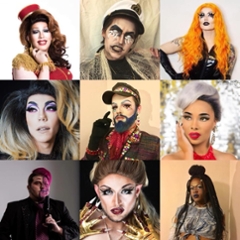 |
|
|
Ezra Temko is in his first year at SIUE. He was hired to support and innovate our applied programs, employment relations, and diversity and social justice. However, he also has other interests, one of which is the field of "drag," which he is teaching for the first time spring 2019.
While drag is a burgeoning field in sociology, our department is leading the way when it comes to its pedagogy. This semester Ezra Temko is teaching a new elective, sociology of drag. SIUE is one of the first 10 higher education institutions to offer a course on drag, and the first to have one rooted in sociology. With the exception of one course taught by a modern literature professor in an interdisciplinary department five years ago, the other drag courses have all been offered through performing arts departments. Ezra said he wanted to teach the course because, "While drag is often playful and entertaining, it is also inherently political. I thought a course on drag would be a fun and approachable way to dive into the social construction of reality, gender, cultural politics and social justice."
Drag has transformed from an act of illegal civil disobedience to a pop culture phenomenon with an Emmy Award-winning show. While drag shows now occur weekly in Alton and St. Louis, you don't have to leave campus to find drag. Beta Zeta Chapter of Delta Lambda Phi hosted their 12th annual drag show on SIUE's campus this past fall, and SIUE's United States Institute for Theatre Technology student organization also hosted a drag show on campus last semester.
|
|
|
Get to Know Our Faculty: Professor Lisa Martino Taylor |
|
| |
|
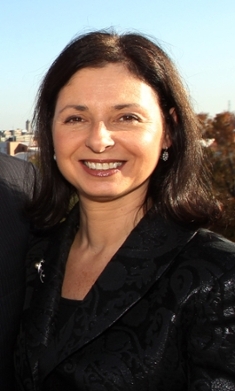 |
|
Dr. Lisa Martino Taylor received her BA and master's at SIUE. Then she left to receive her PhD and has thankfully returned to her alma mater as an assistant professor. We are so lucky to have her once again grace the halls of Peck.
You have done a lot of research about the St. Louis area, can you tell us what has given you the most dismay? And the most hope?
I am always uplifted by the resiliency of decent, honest people who have experienced real injustice and who stand up to speak the truth regardless of potential consequences. History is full of examples of human resiliency, and I have seen this repeatedly in my own research, whether historic and global or ethnographic and local. This affirms my belief in the role of the public intellectual who can learn from such experiences and also share it with the public at large, so that we all learn more about the world with its many facets and fissures in order to avoid further harms and injustice. What is deeply troubling to me is the callous self-interest and misuse of power that expresses itself repeatedly and systematically throughout every level of the human experience. It is often viewed and discussed as an individual pathology, but it is prevalent and veritably institutionalized in American society.
You are an alum of SIUE. How does it feel to come back? What did you miss about SIUE?
I am thrilled to be back at SIUE, which I have always considered my home. Having arrived at age 17, I grew up in this institution. Who I am today as an individual and scholar is because of my experiences here. After I left and went on to University of Missouri-Columbia and other locations, I told anyone who would listen that SIUE is the hidden gem of the region. I have many former students who can verify my high regard and affinity for this institution even when I taught elsewhere.
What would you say to a student who asks, “What can I do with a sociology degree?”
Virtually all professions benefit from having managers and employees with a strong background in sociology. With a degree in sociology, doctors become better doctors, lawyers become better lawyers, corporate managers become better managers, public officials become better public officials, and teachers become better teachers. A degree in sociology brings many skills that go well beyond being a good researcher. One becomes an outstanding leader or team member who can analyze and effectively counter many of the silent dynamics that are destructive to an organization and plague most workplaces, which then negatively affects both customers and constituents. I have worked as a professional researcher and also in the legal field on several significant court cases. When I was hired as a paralegal, the managing partner told me that he strongly preferred a candidate with a bachelor’s degree in sociology over one in paralegal studies. His own daughter later earned a bachelor’s degree in sociology before entering law school and becoming a successful attorney. A sociology degree greatly benefits virtually all fields at every position within an organization.
To what local St. Louis place do you love to go back?
I live in St. Louis, and I like great food, so restaurants that have wonderful food and outstanding service are my favorite places to spend time with family and friends. Addie’s Tai, Taj Palace and Nippon Tei are three of my favorite places to linger over a great meal with my favorite people.
|
|
|
Meet an Alum: Nicole Grimm |
|
| |
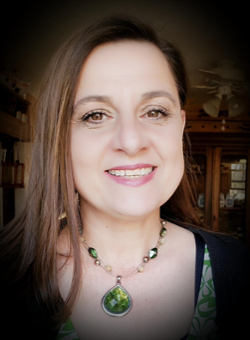 |
|
|
Nicci Grimm received her Bachelor of Arts (BA) in sociology in 2000.
I was naturally drawn to sociology because I am fascinated by the study of human interaction. Furthermore, the sociology professors were so engaging and knowledgeable that I wanted to take every class I could. I took a variety of courses, including women's studies and criminal justice until finally focusing on employment relations.
During my studies in employment relations I gained a deeper knowledge of how work is organized and the types of work that best fit with my goals and values. I gained a profound understanding of the importance of work beyond a paycheck. I learned the importance of work that enriches your life as well as your bank account.
After completing my BA in employment relations, I was able to identify the types of work and work environments that would be a good fit for me. I designed work around my skills and interests. I currently serve as the board president of two non-profits in southern Illinois. Additionally, I am an independent educator specializing in preschool Spanish, elementary STEM education and parenting classes for adults. In 2017, I won second place in the Metro East Start-Up Challenge Business Plan Competition hosted by the Small Business Development Center and SIUE School of Business for my independent education services, which I call “The Idea Factory.” Additionally, I recently began working with Girl Scouts of Southern Illinois, which has a progressive view on creating a work/life balance.
No matter where I work, my background in employment relations gives me an edge. I have gained leadership, cooperation and conflict resolution skills that translate to any work environment.
|
|
|
Undergraduate Student Showcase: Everett Oliver |
|
| |
|
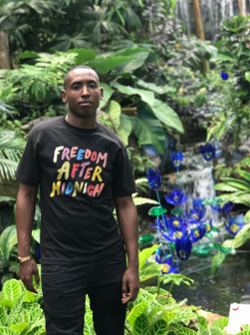 |
|
We have two applied programs in the department: diversity and social justice, and employment relations. Our senior students complete an internship and then write a research paper applying sociology to what they've experienced at their organizations. In this issue, we learn about a student in employment relations, Everett Oliver, who is graduating this spring.
During my internship in sociology, I am conducting ethnographic research at a community center that works with the elderly. While I’m there, I act as a participant observer so that I can both get work done for my internship site and collect data for my research paper. Whenever I observe significant interactions at my internship, or come across new information that could be sociological, I write it down in my field notes so that I can analyze it later. Based on my analysis thus far, aspects of Garrett Morgan’s metaphor “Organizations as Organisms” have the highest presence amongst my data. I have also seen many trends that tell me a lot about my site’s organizational culture: a culture that has elements of family, with caring and nurturing workers.
|
|
|
Thinking about Sociology: Articles You May Enjoy |
|
| |
|
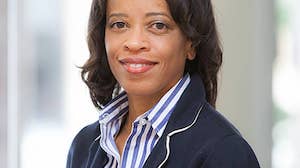 |
|
"How Mindfulness Can Defeat Racial Bias"
Research shows that mindfulness practices help us focus, give us greater control over our emotions, and increase our capacity to think clearly and act with purpose. Might mindfulness assist police and other public servants in minimizing the mistaken judgments that lead to such harms? Might they help the rest of us—professors and deliverymen alike—minimize our biases as well? (The author of this article, Rhonda Magee, will give a presentation on SIUE campus October 16, 2019. All are welcome.)
"Mindfulness Techniques Can Be More Than Quiet Contemplation"
Mindfulness—the practice of focusing on the here and now—seems to boost both your mood and overall well-being. You may think of mindfulness as something you do during meditation—that is, while you're sitting quietly with your eyes closed. If you can carve 20 minutes out of your day to meditate, that's great. But meditation is just one mindfulness technique. You can also practice informally, by simply being present in the moment during everyday activities.
"Sociology and Mindfulness Meditation"
Much like practicing meditation, being sociological also requires that we respond based on awareness rather than react based on habitual patterns. When we speak of the sociological imagination, we are suggesting the ability to see the bigger picture, to be aware of the social situation and be attentive to the complexity of social processes. Those who lack the sociological imagination often react hastily to social phenomena based on their habitual patterns, prejudices and preconceptions. In short, we can say that such reactions are unmindful.
|
|
|
|
